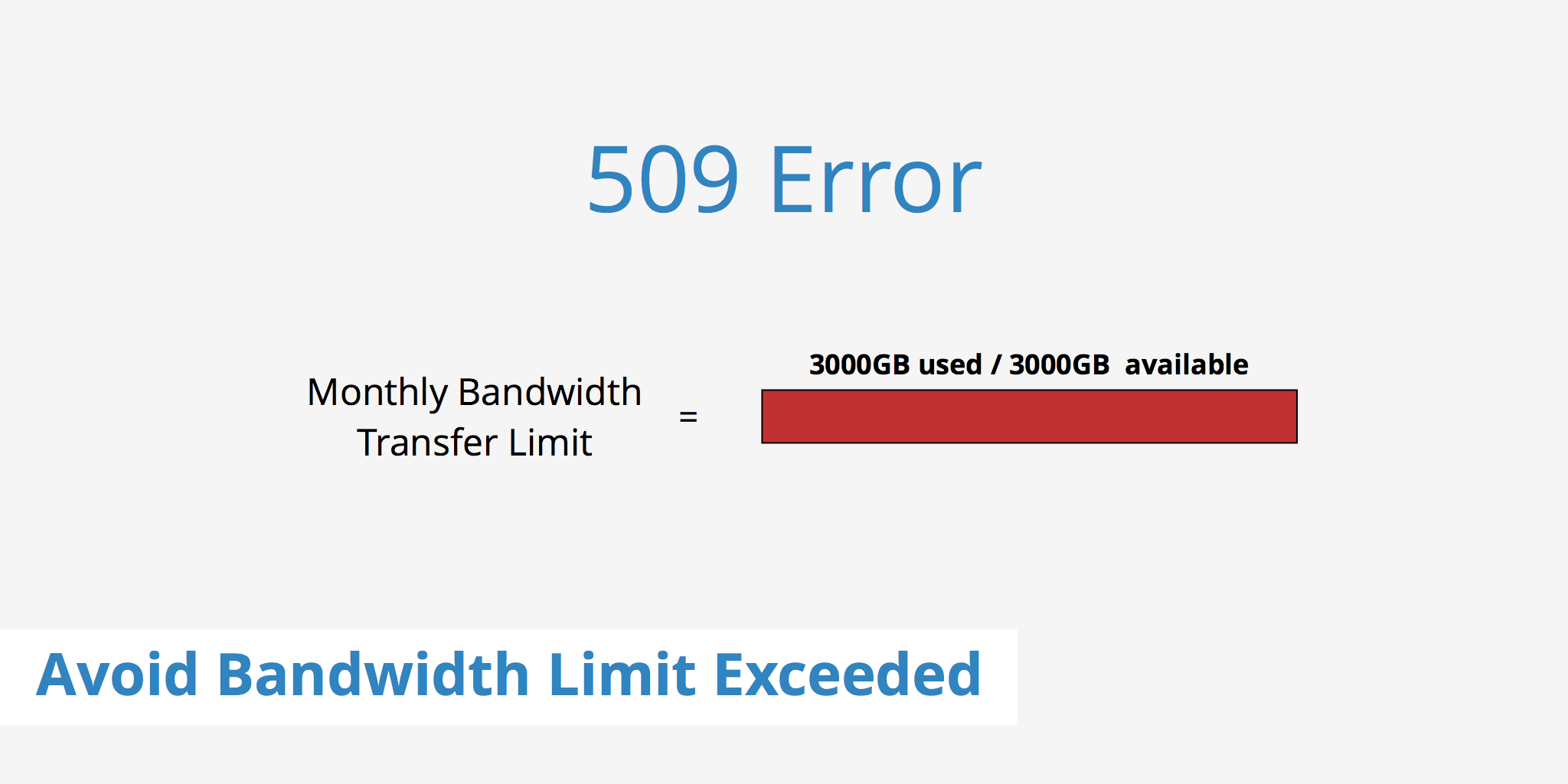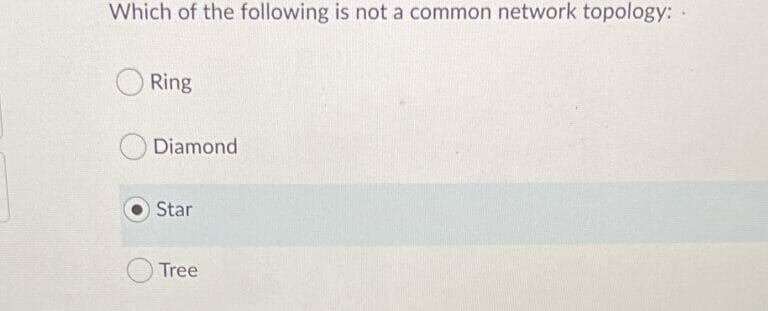
Picture this: you’re scrolling through your favorite website, eager to catch up on the latest news or watch a hilarious cat video. But suddenly, a message pops up on your screen: “Bandwidth Limit Exceeded.” What does that even mean? Don’t worry, my friend, I’ve got you covered!
In this article, we’ll unravel the mystery behind the phrase “Bandwidth Limit Exceeded.” Seriously, it’s not as complicated as it sounds. We’ll break it down into bite-sized pieces, so even a tech newbie like you can understand it!
So, grab your seat, and let’s dive into the world of bandwidth and explore what happens when that limit gets pushed to its very limits. Time to get tech-savvy in the simplest way possible! Are you ready? Let’s go!
What Does Bandwidth Limit Exceeded Mean?
Bandwidth Limit Exceeded is an error message that indicates the allocated data transfer capacity for a website or internet connection has been exhausted.
It usually occurs when the number of visitors or the amount of data being transferred exceeds the allowed limit. This can result in slow loading times or the temporary unavailability of the website.
To resolve this issue, you can upgrade your hosting plan, optimize your website’s performance, or reduce data usage. Ensure your website’s bandwidth allocation meets the requirements of your traffic volume to prevent this error.
Basics of Bandwidth
To fully understand what bandwidth limit exceeded means, it is necessary to comprehend the concept of bandwidth itself. Bandwidth refers to the maximum rate at which data can be transmitted over a network connection. It is typically expressed in bits per second (bps) or a variation such as kilobits per second (kbps) or megabits per second (Mbps).
When you access a website or use an online service, data is sent from the server hosting the content to your device.
This data is transmitted over the internet through a series of interconnected networks, each with its own bandwidth capacity. The total available bandwidth determines how quickly the data can be delivered to your device.
Causes of Bandwidth Limit Exceeded
There are several reasons why you might encounter the “bandwidth limit exceeded” message. Let’s explore some of the common causes:
1. High Traffic Volume: Websites or online services with a high volume of visitors can experience bandwidth limits being exceeded if the demand exceeds the available capacity. This is particularly common during peak usage times or when a significant event or promotion attracts a large number of users.
2. Data Transfer Caps: Some internet service providers (ISPs) impose data transfer caps on their plans. These caps limit the amount of data that can be transferred within a specific period.
When users exceed these limits, they may receive a bandwidth limit exceeded message and experience a slowdown in their internet connection.
3. Insufficient Server Resources: In the case of websites or online services, the hosting server may have limited bandwidth resources allocated to it. If the demand for data exceeds the server’s capacity, users may encounter bandwidth limit exceeded issues.
Troubleshooting and Avoiding Bandwidth Limit Exceeded
Experiencing bandwidth limit exceeded issues can be frustrating, but there are steps you can take to troubleshoot and avoid them in the future. Here are some tips:
1. Optimize Data Usage: Make sure you are utilizing your internet connection efficiently. Avoid excessive file downloads, video streaming, or other activities that consume a significant amount of data. Regularly monitor your data usage and consider upgrading to a plan with higher data limits if necessary.
2. Clear Cache and Cookies: Clearing your browser’s cache and cookies can help improve overall browsing performance. This can alleviate some of the strain on your internet connection and potentially prevent bandwidth limit exceeded issues.
3. Contact Your ISP or Webmaster: If you consistently encounter bandwidth limit exceeded problems, reach out to your ISP to inquire about your data plan or potential solutions. For websites or online services, contact the webmaster or administrator to report the issue and seek assistance.
The bandwidth limit is a common issue that can occur when the amount of data transfer allowed for a connection or website is surpassed. It can lead to slow loading times, restricted access, or service disruption.
By understanding the basics of bandwidth, identifying the causes of these issues, and implementing troubleshooting measures, you can navigate around the challenges posed by bandwidth-limit-exceeded messages and enjoy a smoother online experience.
Remember to monitor your data usage, optimize your internet activities, and seek assistance from your ISP or webmaster if needed.
Frequently Asked Questions
Bandwidth limit exceeded is a term used to describe a situation where a website or server has reached its allocated bandwidth quota. When this happens, the website or server is unable to handle any more incoming traffic or data transfers. This can result in the website becoming temporarily inaccessible or slow to load for users.
Q: Why do I see a bandwidth limit exceeded message on a website?
A: You might see a bandwidth limit exceeded message on a website when the website has received a high volume of visitors or when it has reached its data transfer limit. Websites usually have a set amount of bandwidth allocated to them by their hosting provider. When this bandwidth limit is exceeded, the website can no longer handle any more incoming requests, leading to the error message.
It’s important to note that bandwidth is consumed not only by website visitors but also by any data transfers happening on the website, such as file downloads or streaming media. These activities contribute to the overall bandwidth usage of a website.
Q: How does the bandwidth limit exceed affect website performance?
A: When a website reaches its bandwidth limit and displays a bandwidth limit exceeded message, it means that the website is unable to handle any more incoming traffic.
As a result, the website may become slow or unresponsive for users trying to access it. This can be frustrating for visitors who might abandon the website and look for an alternative.
In addition to affecting the website’s performance, a bandwidth limit exceeded situation can also impact the website owner financially.
If the website is generating revenue through ads or e-commerce transactions, the downtime caused by the exceeded bandwidth limit can result in lost opportunities and potential income.
Q: How can a website owner prevent bandwidth limit exceeded issues?
A: To prevent bandwidth limit exceeded issues, website owners can take several measures. Firstly, they can monitor their website’s bandwidth usage regularly to identify any spikes or trends. By staying aware of their website’s bandwidth consumption, they can plan ahead and upgrade their hosting plan if necessary.
Additionally, website owners can optimize their website’s files and data to reduce their overall size and decrease the amount of bandwidth required for each user interaction. This can involve compressing images, minifying code, and utilizing caching techniques to reduce the number of data transfers needed.
Q: Can users do anything to help alleviate bandwidth limit exceeded issues?
A: While users cannot directly control a website’s bandwidth limit, there are a few things they can do to help alleviate the issue. Firstly, users can try accessing the website during off-peak hours when there might be fewer visitors, which could result in a smoother browsing experience.
Users can also minimize their data usage on the website by avoiding unnecessary downloads or streaming activities. By reducing their own data consumption, users can contribute to relieving the strain on the website’s bandwidth resources.
Q: Is bandwidth limit exceeded the same as exceeding data usage on a mobile plan?
A: No, bandwidth limit exceeded and exceeding data usage on a mobile plan are two different concepts. Bandwidth refers to the amount of data that can be transmitted between a website and its visitors over a given period, usually measured in megabits per second. On the other hand, exceeding data usage on a mobile plan refers to using more data than your mobile service provider has allocated in your monthly plan.
While both situations involve exceeding a set data limit, the contexts are different. Bandwidth limit exceeded relates to website performance, while exceeding data usage on a mobile plan can result in additional charges or reduced speeds for the mobile user.
When you see the message “Bandwidth Limit Exceeded,” it means that the website you’re trying to visit has exceeded its data limit.
This can happen if the site is very popular and receives too many visitors or if the site owner didn’t purchase enough bandwidth.
It’s like a traffic jam on the internet highway, causing the website to become temporarily unavailable. To fix this, the site owner needs to purchase more bandwidth or wait until the limit resets.
In the meantime, you can try refreshing the page or visiting the site at a later time. It’s important to understand that this message is not caused by anything you did wrong. So, don’t worry, it’s just a temporary issue that will be resolved soon.






